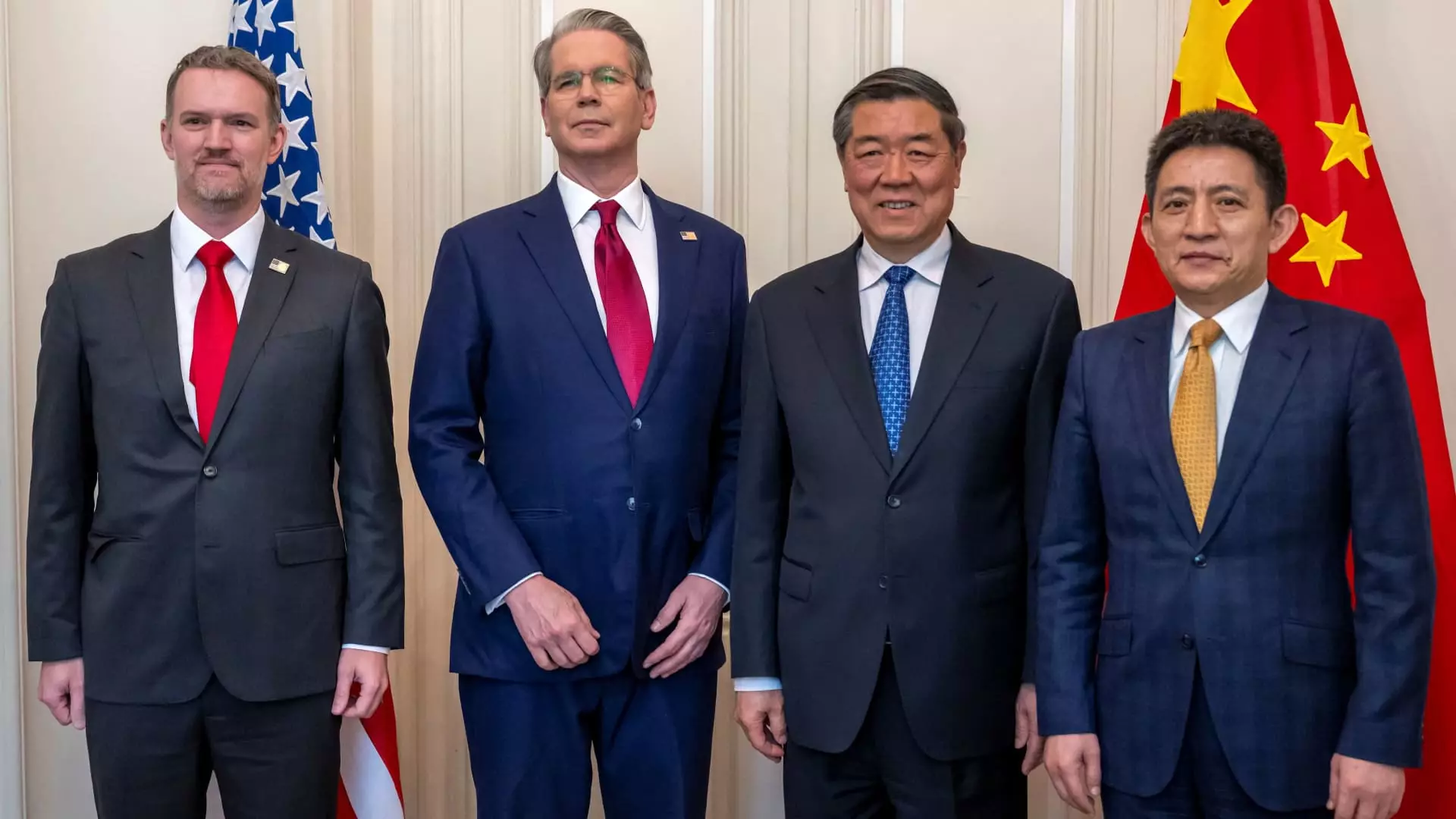With global markets on edge and the specter of a trade war looming large, the recent discussions between U.S. trade officials and their Chinese counterparts in London symbolize more than just rhetoric; they signify a crucial yet perilous moment in economic diplomacy. Leaders from the United States, including Treasury Secretary Scott Bessent, Commerce Secretary Howard Lutnick, and Trade Representative Jamieson Greer, gathered with officials from China led by Vice Premier He Lifeng, aiming to navigate through turbulent waters that have seen the world’s two largest economies entangled in a web of retaliatory tariffs and complex negotiations. It raises the question: can diplomatic discussions truly mend the fractures that have developed?
As an advocate for center-wing liberalism, I believe that the intentions behind such negotiations may be marred by underlying tensions—they are less about finding common ground and more about a delicate game of chess, where each move is observed, analyzed, and anticipated. The exchange of tariffs, a strategy initiated by President Trump, was supposed to protect American interests but has instead spiraled into a public display of economic nationalism that only serves to deepen divisions between the two countries. This current moment casts a shadow over any optimistic claims regarding the potential for cooperation.
Trade Tensions: The Many Faces of Conflict
Trade discussions often inherit a facade of civility when, in reality, they underscore a more profound struggle for economic supremacy and technological innovation. The recent agreement—an attempt to scale back import duties temporarily—looks promising on the surface. However, we must scrutinize the implications of this tattered ceasefire. The U.S. tariff on Chinese imports was reduced from a staggering 145% to 30%, a move meant to facilitate dialogue rather than instigate further discord. On the flip side, China’s obligation to lower tariffs from 125% to a mere 10% might seem beneficial, but this superficial gesture hardly disguises the significant rifts that persist in various sectors from technology to agriculture.
In statements by U.S. Press Secretary Karoline Leavitt, there’s a focus on moving forward in line with the Geneva agreement, yet the resource allocation for a truly equitable economic relationship appears vastly insufficient. The persistent accusations exchanged between the nations of violating such agreements only perpetuate a sense of distrust. The U.S. has chastised China for purported delays in exporting critical minerals, vital for technology and manufacturing, while China retaliates with allegations surrounding visa restrictions for Chinese students and new export limitations on semiconductors.
Existential Warfare: More Than Just Trade
Distinguished economist Rebecca Harding articulates an essential point: the essence of this economic standoff transcends traditional trade disputes. It is deeply intertwined with the broader narrative of data flows, artificial intelligence competition, and geopolitical dominance. As nations race to secure their positions in an increasingly digitized world, the paradigm of trade shifts significantly. It resembles an existential battle—one that influences not just financial exchanges but the core identity of nation-states in the 21st century.
Moreover, the arms race in technology is paralleled by China’s ramped-up munitions production, an alarming discourse intertwined with trade discussions. This scenario illustrates how commerce can no longer be dissociated from notions of national security and technological advancement—a troubling entanglement that complicates negotiations immensely.
Key Players and Uncertain Outcomes
Despite the optimism expressed by economists such as Zhiwei Zhang regarding the importance of dialogue, one must remain skeptical. His statement that no substantial agreement is expected soon epitomizes the prevailing sentiment among analysts: the machinery of negotiation is slow and prone to stalling. Any agreements reached may address specific issues like rare earth minerals, but the probability of achieving a comprehensive resolution during these talks in London remains bleak.
The presence of larger strategic interests complicates matters further, with party politics influencing the likelihood of compromise. It is imperative that stakeholders recognize that these negotiations are not just about resolving trade disparities; they are a preamble to the future shaping of global economic dynamics.
The meeting in London reveals a complex interplay of contemporary challenges faced by both America and China. While the diplomatic front seems earnest, the underlying forces at play lead us to question whether meaningful dialogue can emerge in this highly charged atmosphere. The implications of a failure to reconcile these tensions are vast, as they may reverberate well beyond trade itself, impacting global stability and our collective future.


Leave a Reply